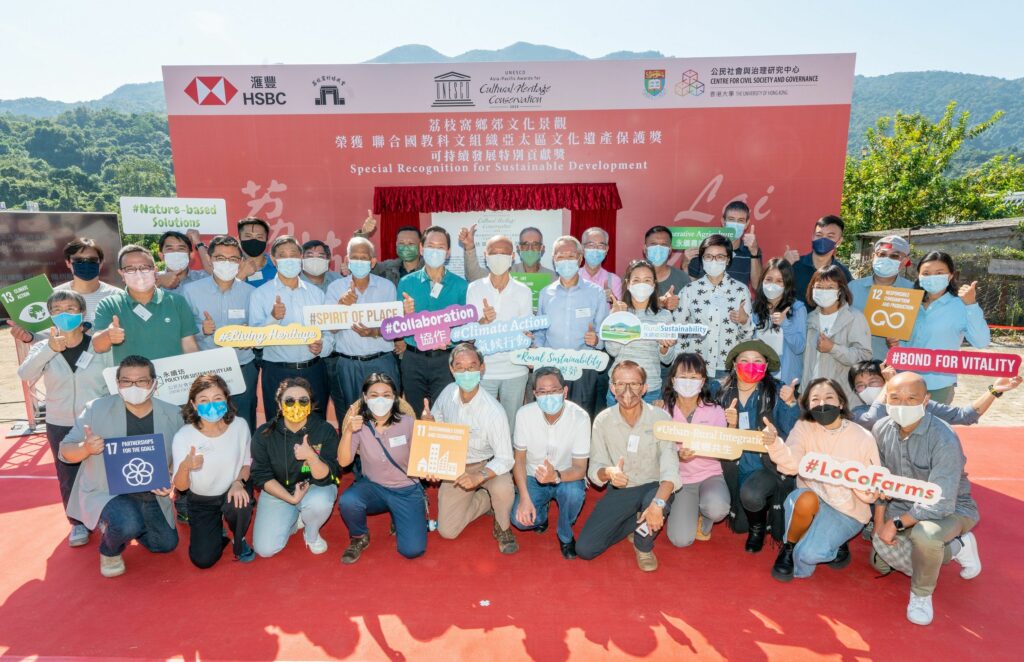Case study conducted by: The Centre for Civil Society and Governance, The University of Hong Kong
Location: Hong Kong, China
Time span: 2014 – present
SDGs: 11, 12, 13, 15, 17
Major Partners: The University of Hong Kong, Hong Kong Bank Foundation, Hong Kong Jockey Club, The Hong Kong Environment and Ecology Bureau, Indigenous villagers, Researchers in related fields, Farmers, Artists, Interested individuals and groups, Environmental NGOs
Data sources in case analysis: Interviews, documents, mini-survey

In GOGREEN, we define the green SDGs as the following SDGs: SDG 6, SDG 7, SDG 11, SDG 12, SDG 13, SDG 14, SDG 15
The sustainability innovation of this case in Hong Kong concerns the adoption of a collaboration approach to rural revitalization, which focuses on leveraging the efforts of stakeholders from various communities of interest to foster a local economy that can strike a balance between ecological integrity and social-economic viability. Such an approach is a departure from the conventional approach which relied on rules and regulations to prohibit development activities from taking place in the green area.
The inception and incubation of the innovation was itself a collaborative/co-creative effort; initiated by lay policy actors and NGOs in the environmental sector. At the core of the co-creation process was an action research project led by the Centre for Civil Society and Governance at The University of Hong Kong in collaboration with three major environmental NGOs; the project was funded by the charity foundation of an international bank. Focusing on Lai Chi Wo village as the experimental site, the project explored and experimented alternative local social economic models, developed strategies of engaging different communities of interest, facilitated public discourse and re-envisioning of the development of the rural area, and incubated social ventures to sustain the momentum of revitalization work. The project not only successfully revitalized the village, but more importantly forged a rural revitalization model that informs similar efforts. The project won the 2020 UNESCO Asia-Pacific Awards for Cultural Heritage Conservation in recognition of its paradigmatic significance.
Building on the success, the Chief Executive of Hong Kong Government announced in her Policy Address 2019 that a Countryside Conservation Office (CCO) would be established to co-ordinate conservation projects that promote sustainable development of remote countryside; a total of HK$1 billion would be earmarked for the conservation effort and revitalization works. The CCO would collaborate with nonprofits interactively to take forward the planning of enhanced efforts for countryside revitalization. Half of the earmarked fund has been deployed to Countryside Conservation Funding Scheme (CCSF) to support nonprofits to organize conservation activities or projects in the remote countryside. It is through these collaborative initiatives to implement and fine-tune the new collaborative approach to rural revitalization. So far thirty initiatives have been supported; more are expected to be launched.
This website uses strictly-necessary cookies. To read more about WordPress cookies, click here. Please click on the ‘Accept’ button to continue on to the GOGREEN Project site.